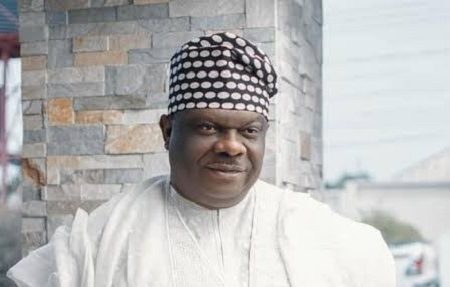2nd August 2025 | By Peter Omopo
Former Attorney General of the Federation and Minister of Justice, Chief Michael Aondoakaa (SAN), has firmly declared the oil boundary dispute between Akwa Ibom and Cross River states settled and legally closed, warning that any attempt to revisit the matter is a violation of both international and domestic legal frameworks.
Speaking during an interview on ARISE News on Friday, Aondoakaa stated that the dispute, which culminated in the International Court of Justice (ICJ) judgment and was followed by the implementation of the Green Tree Agreement, has been concluded and enforced in full.
“As chairman of the boundary committee and co-leader of the Green Tree Agreement implementation, I can confirm that the final stage — the Bakassi handover — was completed. The judgment was enforced to the letter,” he affirmed.
Aondoakaa explained that Cross River lost its littoral status after the cession of Bakassi to Cameroon, thereby losing legal access to offshore oil wells — a position upheld by the Nigerian Supreme Court on two occasions.
“Cross River had its day in court — twice. The decisions were clear, and they were implemented,” he said.
He criticised attempts to revive the dispute, revealing that during crucial boundary meetings, Cross River State failed to present its case, while Akwa Ibom State actively participated. He noted that although then-Vice President Goodluck Jonathan showed sympathy toward Cross River, the consensus was that the state had forfeited its claims through inaction.
He further disclosed that Akwa Ibom, despite its legal advantage, had extended an offer of N250 million monthly to Cross River as a goodwill gesture — an offer that was accepted.
“All elements of the Green Tree Agreement were honoured. We had meetings in Switzerland with global oversight. Nigeria followed through with every commitment. We cannot selectively obey international judgments,” Aondoakaa said.
He cautioned that any move to reopen the matter is “futile and irresponsible,” warning it could damage Nigeria’s diplomatic integrity.
Bill on Traditional Rulers’ Council Co-Chairmanship Risks Constitutional Breach – Aondoakaa
Aondoakaa also voiced strong reservations about a proposed bill seeking to establish a permanent co-chairmanship of the National Council of Traditional Rulers for a specific monarch, warning it could breach the Nigerian Constitution and ignite ethnic tensions.
“There is value in involving traditional rulers in governance, but how this bill is being proposed is where the legal red flags emerge. The Federal Government has no constitutional power to legislate on traditional institutions,” he stated.
He explained that traditional matters fall under the residual legislative list, meaning only state governments have the authority to enact laws in that domain. As such, unless the bill is processed as a constitutional amendment, it remains an unconstitutional initiative.
Even if introduced as an amendment, Aondoakaa doubted its viability, citing the challenge of securing support across Nigeria’s geopolitical zones.
“In a multi-ethnic society like ours, elevating one traditional institution above others will only create rivalries. It is a wasteful exercise that could erode unity,” he warned.
While acknowledging the influence of traditional rulers, especially in community policing and grassroots development, Aondoakaa warned that institutionalising their role federally may subject them to political manipulation.
“We’ve seen how politicised everything has become. Even appointments and removals of traditional rulers are now often tied to the whims of ruling parties,” he said, referencing recent controversies in Kano.
He urged lawmakers to adopt a cautious and inclusive approach toward reform involving traditional institutions.
“The dangers are more glaring than the advantages. Any reform must be well-researched, broad-based, and constitutionally sound,” Aondoakaa concluded.

